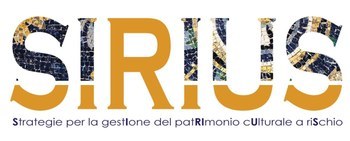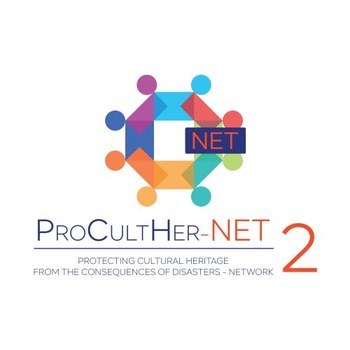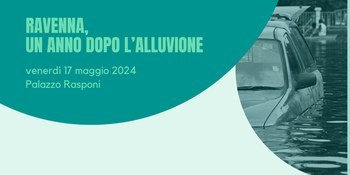Related Projects
RELATED PROJECTS

Logo of the SIRIUS Project
SIRIUS - Management Strategies for Cultural Heritage at risk (2021-2023; 2023-2025), is a project active within the framework of the PNRR PE05 CHANGES ‘Cultural Heritage Active Innovation for the Next-Gen Sustainable Society’. Its key objective is that of supporting local Authorities and Institutions in the improvement of procedures of monitoring, prevention and mitigation of risks to which the cultural heritage of Ravenna is exposed. The project intervenes in three specific areas: 1. Updating and systematisation of the documentation; 2. Training and updating of skills on the subject of cultural heritage at risk and related prevention and intervention strategies in emergency situations; 3. Communication to and awareness raising within the local population.
The SIRIUS Project is implemented by the University of Bologna, Department of Cultural Heritage (Ravenna Campus), with the support of the Flaminia Foundation and the Municipality of Ravenna.

Logo of the 1563 Foundation
The Fondazione 1563 per l'Arte e la Cultura, is an instrumental body of the Compagnia di San Paolo Foundation. This operational foundation is specialised in supporting research in the field of humanities, with a particular focus on the enhancement of young scholars, and the convergence between the potential of digital technologies and the traditions of humanistic research. Its areas of intervention are the protection and enhancement of the Compagnia di San Paolo's Historical Archives and the promotion of research and studies on humanistic culture.
In recent years the Foundation has also been actively involved in the prevention and protection of cultural heritage at risk, especially with respect to materials preserved within libraries and archives.

Logo Project Proculther-net 2
PROCULTHER-NET 2 - Protecting Cultural Heritage from the Consequences of Disasters-Network 2 (January 2024-ongoing). Building on the experience and lessons learnt by the previous PROCULTHER initiatives implemented under the framework of the Union Civil Protection Knowledge Network (UCPKN), PROCULTHER-NET 2 aims at implementing the pathway mapped out by the PROCULTHER-NET project in order to consolidating the inclusion of the protection of cultural heritage at risk sector in the Union Civil Protection Mechanism processes and structures, so as to increase disaster preparedness capacities and knowledge at European and national levels. .
The project focuses on the two priorities envisaged under Topic 2 of the call:
- priority 1-Institutional preparedness
- priority 2-Individual capacity strengthening.
By addressing both priorities, PROCULTHER-NET 2 will be able to translating the path mapped out by the PROCULTHER-NET project into practice to efficiently establish a thematic community dedicated to the protection of cultural heritage at risk within the UCPKN.

Logo of CHARISMA: Cultural Heritage Academy for Risk Management
The Project Risk Management for Cultural Heritage (2022-2024), funded by the European Union under Agreement n° 2021-1-IT01-KA220-VET-000034797, led to the birth of CHARISMA, Cultural Heritage Academy for Risk Management. The aim of the project is to develop and test a new VET curriculum to respond to the labour market needs with respect to the Cultural Heritage sector in the face of climate change, formalising the skills and competences needed for a new professional figure: the Cultural Heritage Risk Manager.
The project partners are: Mazzini Lab, Donau-Universität Krems, Università per Stranieri di Perugia, ITAM ARCCHIP, ARTE Generali.

Logo of the SOS HERITAGE project
SOS-HERITAGE (2022-2024) is a project co-financed by the European Union, within the framework of Agreement No. 101055573. At the basis of the project are three fundamental needs identified within the local environment. First of all, the idea that for a sustainable management of our cultural heritage, it is essential to be prepared on how future climate change will affect the indoor microclimate of buildings. Secondly, more effective and efficient conservation, adaptation and mitigation strategies need to be developed in order to preserve these priceless cultural assets for the long-term future. Lastly, there is the need for a new specialised figure to emerge, a trained professional with the skills to assess, measure, monitor and prevent risks to cultural heritage caused by climate change and poor conservation.
The project, therefore, will address and analyse three specific objectives:
- (SO1)To share and test best practices in digital content creation and communication for successful engagement;
- (SO2) To develop a web application to help manage risk assessment procedures and produce risk management plans;
- (SO3) To develop a training course on 'Cultural Heritage Risk Management' for cultural heritage managers.
The project partners are: Mazzini Lab, Donau-Universität Krems, A.D.S.I. (Associazione Dimore Storiche Italiane), National Museum Kruševac and Transylvania Trust.

Logo of the Proculther-net Project
Protecting cultural heritage from disasters is a challenging new frontier for disaster risk management and civil protection operations. Improved coordination, effectiveness and efficiency at national and European level will help overcome dangerous situations that put cultural heritage at risk. PROCULTHER-NET, Protecting Cultural Heritage from the Consequences of Disasters - Network (2022-2023), seeks to strengthen the link between science and decision-making with knowledge to help reduce the vulnerability of disaster-prone communities and ensure more sustainable and informed intervention procedures. The project sets out to establish a European thematic community based on protecting cultural heritage and equip civil protection experts with relevant knowledge and skills.
Drawing on the extensive network of contacts and technical and operational content built up through the previous PROCULTHER project, PROCULTHER-NET will consolidate and expand multidisciplinary and risk-based exchange practices in the field of cultural heritage protection in an emergency.
Using a science-based and people-centred approach, the identification of cultural heritage-focused capacities will feed knowledge-building efforts and ensure that decision-making can be more effective and consistent.

Logo of the Proculther Project
PROCULTHER- Protecting Cultural Heritage from the Consequences of Disasters (2019- 2021) was an initiative co-funded by the Directorate-General for European Civil Protection and Humanitarian Aid Operations - DG-ECHO, in the framework of the Union Civil Protection Mechanism (UCPM) and designed to develop and improve technical and operational capacities for the safeguard of cultural heritage at risk of disaster at all territorial levels. The project was coordinated by the Italian Civil Protection Department - DPC, in collaboration with the International Centre for the Study of the Preservation and Restoration of Cultural Property - ICCROM, the Disaster and Emergency Management Presidency for Türkiye - AFAD, the Direction de la Sécurité Civile et Gestion de crises - DGSCGC for France, the Hallgarten-Franchetti Centro Studi Villa Montesca Foundation - FCSVM and the Consejería de Cultura y Turismo de la Junta de Castilla y León - JCyL for Spain.
With an overall budget of 800.000 EUR (co-financed by 75% from DG ECHO) and throughout the project ‘s duration the PROCULTHER Team has supported the project activities with its expertise in the fields of preparedness, capacity building and disaster risk management toward the implementation of the following activities (work packages):
- A European methodology for the protection of cultural heritage in emergency
- Establishing a European civil protection capacity to provide guidance and support globally for CH first aid during emergencies
To learn more about the project it's possible to dowload the manual connected to the first outpu here " Key Elements of a European Methodology to Address the Protection of Cultural Heritage during Emergencies"

Logo of the PROMEDHE project
PROMEDHE- Protecting Mediterranean Cultural Heritage During Disasters (2015-2018), is a project coordinated by the Italian National Civil Protection Authorities (Dipartimento di Protezione Civile, DPC) in partership with Cyprus, Israel, Jordan and Palestine. Considering the inestimable universal value of cultural heritage and the importance of its conservation and safeguard, PROMEDHE focused on two general objectives:
- (1) contributing to the increase of dialogue and exchanges between Cyprus, Israel, Italy, Jordan, Palestine and other EU member states on disaster management, in order to reinforce collaboration among their national civil protection authorities;
- (2) developing tools and assets to improve cultural heritage safeguard by creating national pools of experts able to work jointly at both national and regional level.
PROMEDHE, indeed, was able to reinforce capacities and procedures of national resources to optimize their response to natural disaster, paying particular attention to people’s safety, as well as to the landscape and the archaeological and cultural sites located in the region. The project’s objective was to create a cross border regional network of experts to cooperate and share experiences in the field of cultural heritage protection during disaster management. To do so, PROMEDHE stimulated the creation of a fertile ground for the involved Civil Protection Authorities by promoting a common approach and methodology.
RELATED EVENTS

The banner of the event
Ravenna, one year after the flood
17 May 2024, from 9 a.m. | Palazzo Rasponi, Ravenna
The event intends to keep attention focused on the dramatic event that was the flood of last year and to reason about the devastating effects that climate change is having on our lives and our territories. Through three distinct moments, dedicated respectively to 'remembrance', 'information' and the 'presentation of scientific environmental research' that has subsequently emerged, an attempt will be made to understand the historical significance of what happened. Speakers will include local institutions that dealt with the emergency and the academic world of research that collaborated in the subsequent phase with damage estimates and activated measures to investigate causes and investigate possible future scenarios.
The initiative will be moderated by Radio3Scienza journalist Marco Motta.
The day is organised and sponsored by the University of Bologna - Department of Biological Geological and Environmental Sciences, and the Interdepartmental Research Centre on Environmental Sciences of the Ravenna Campus, co-participated by the Municipality of Ravenna, in cooperation with the Flaminia Foundation, the Technopole of Ravenna and the Ravenna Order of Engineers, and sponsored by the Ravenna Order of Architects and the Order of Agronomists and Foresters of the Province of Ravenna.